Below you will find information that can be helpful for this stage of your families journey, as well as programs offered for this Age & Stage.
Education | Life After School | Puberty/Dating | Medical Health Care | Regression | Nutrition/Exercise/Weight Management | Financial/Legal | Program Offerings
Welcome
We are here to support you in every way possible and welcome you to contact us with any questions you may have.
| Director of Family Support |
|
What Is an IEP? | Individualized Education Program Explained
Navigating your child’s Individualized Education Program/Plan (IEP) is a BIG job. Check out these great IEP resources from our “tried and true” experts.
- Wrightslaw – Offers a wealth of IEP information and resources, training, and expertise in Special Education Law.
- A Day in Our Shoes – Learn more about the IEP process from a mother-turned-advocate's perspective.
- Parent Tips for the IEP – This quick reference guides you through before, during and after the IEP meeting with helpful tips!
- Customizable “All About Me” Template – Customize, print, and share with your child’s IEP team
- Editable and Printable “IEP at a Glance” - Ensure you and your child’s school team are LITERALLY on the same page by completing this one-page summary with your child’s IEP team.
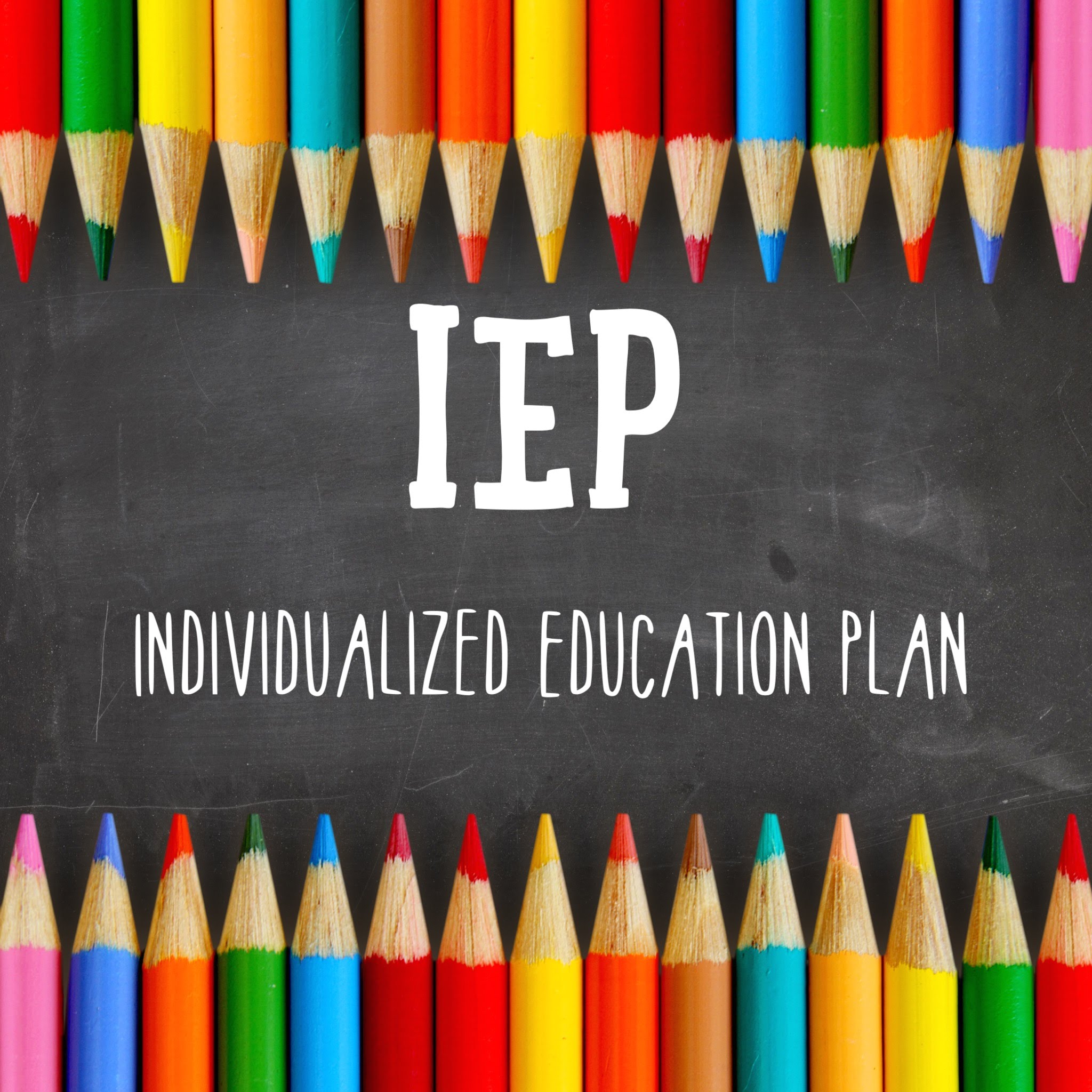
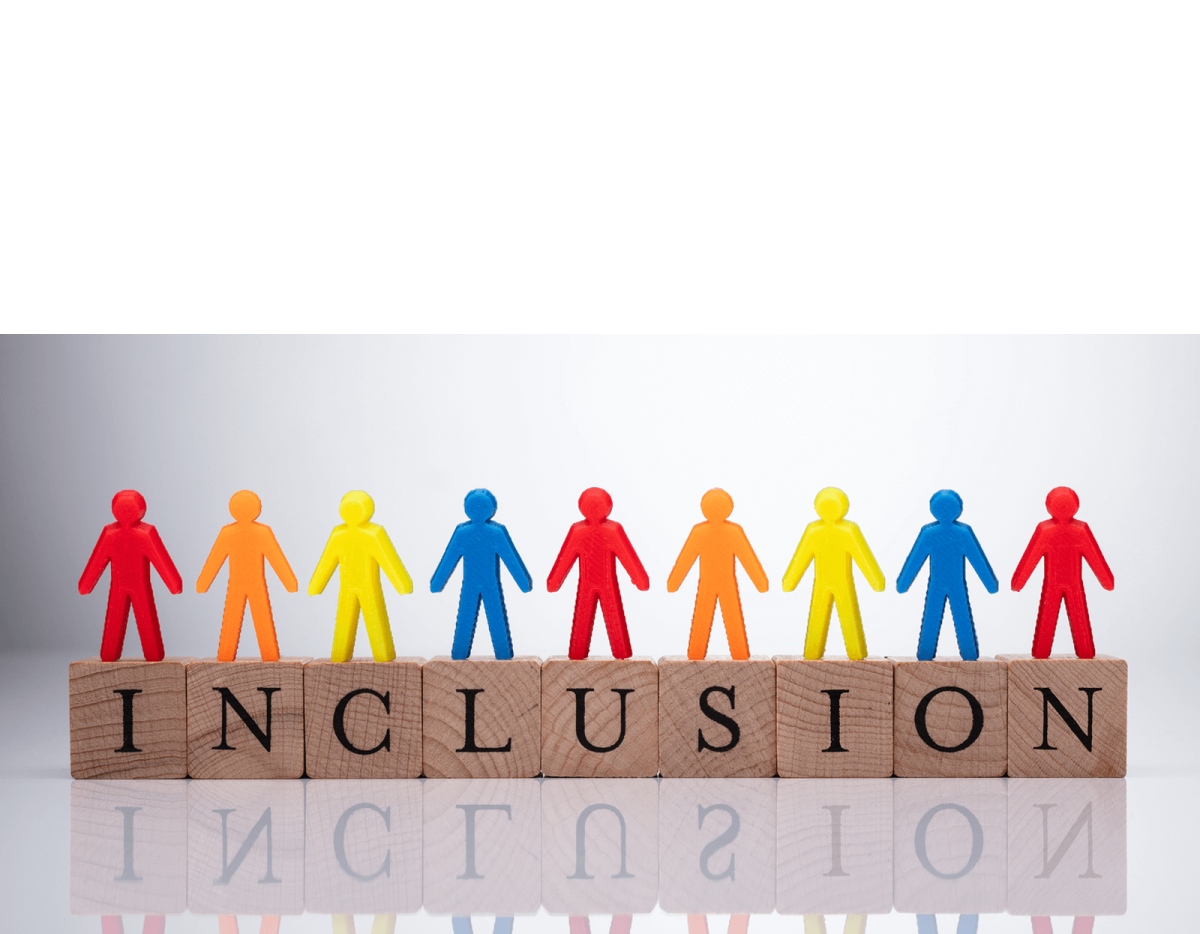
Inclusion Resources
Special Education is not a location... it is a wide range of supports and services that help students with disabilities learn and make meaningful progress. Read more about inclusion and discover effective strategies that help maximize your child’s engagement and participation at school.
- Paula Kluth’s “Inclusion Rules!” - Check out this “one stop shop” for great information and helpful resources that focus on inclusive practices.
- Inclusion for Students with Down syndrome – National Down Syndrome Society provides specific information and best practices for implementing inclusion for students with Down syndrome.
- Understand the benefits of inclusive education for students with Down syndrome and the keys to success in this article published by Down Syndrome Education International (DSE)
Special Education Law and Advocacy Resources
As your child’s best expert and an equal part of the IEP team, YOU can make a positive and meaningful impact on your child’s education. Empower yourself with the knowledge you need to be an informed parent/caregiver and an effective advocate!


Universal Design for Learning (UDL)
Did you know that your child is entitled to differentiated teaching and learning approaches that help remove barriers and increase access to a more meaningful and equitable education? Thanks to Every Student Succeeds Act (2015), students of ALL abilities can now learn in ways that support their unique strengths and areas of need. Check out these helpful resources and discover the wonderful world of Universal Design for Learning, differentiation, and best practices that support an equitable education for your learner.
- Every Student Succeeds Act, 2015
- UDL Guidelines – The team of dedicated educators and specialists at CAST are experts in all things related to UDL. Check out their website to learn more about UDL and gain a better understanding of how to advocate for differentiated learning for your child.
- UDL Principles and Practices – Learn the basic principles of UDL in this informative video presented by the National Center for Universal Design for Learning.
Behavior in School
Navigating a demanding school environment can be challenging for learners with Down syndrome and at some point, your child may engage in non-preferred behaviors. This is not uncommon, and we’ve found there are often very identifiable and valid functions of behavior, such as limited or no access to multi-modal communication tools and inappropriate demand.
Learn more about common behaviors in individuals with Down syndrome and discover effective strategies you can share with your child’s IEP team to help reduce problem behaviors and foster a positive learning experience for all!
- Strategies to Reduce Challenging Behavior in Young Children with Down syndrome
- Behavior and Down syndrome – A Practical Guide for Parents

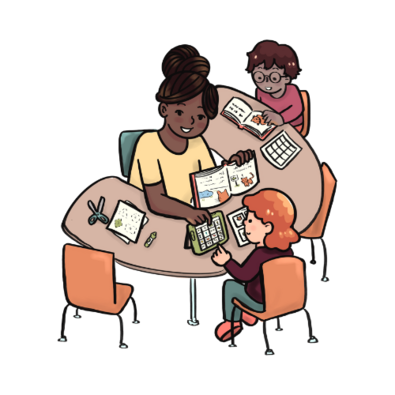
Communication Resources
Your child deserves to be heard. DSCBA offers a wide range of communication resources that support complex communication needs and empower you with the tools you need to advocate for a comprehensive communication plan for your child in school. Discover multi-modal communication supports and strategies that empower your child with a voice!
AS TEENS START TRANSITIONING INTO ADULTHOOD,
THERE ARE A LOT OF CHANGES AND PREPARATION FOR THE FUTURE THAT OCCUR.
MENTAL HEALTH ALLIANCE
The Mental Health Alliance program provides information, trainings, resources and supports by partnering with therapists, therapy centers and training institutes to motivate and better equip mental health professionals to feel confident in working with individuals with Down syndrome.
The Mental Health Alliance has created an online resource of communication tools and visual supports.
| Mental Health Alliance Padlet |
If you would like to learn more about this program, please contact MHA@dscba.org.


REGRESSION
Regression can be caused by many things and is associated with a marked decline in previously established functions.
- Regression in Persons with Down Syndrome: Current Consensus Update for Families written by the Down Syndrome Medical Interest Group (DSMIG) discusses symptoms, possible causes and treatments.
- Dr. Brian Chicoine hosted a webinar about decline in skills in adolescents and adults with Down syndrome which addresses Down Syndrome Regression Disorder, Alzheimer’s Disease and other reasons of decline.
- Children’s Hospital in Los Angeles is leading a pioneering study to find new treatments for Regression in individuals with Down syndrome.
- Reversing Course: Down Syndrome and Regression - Down Syndrome Resource Foundation: On Season 6, Episode 2 of The LowDOWN: A Down Syndrome Podcast, Dr. Jonathan Santoro and Dr. Eileen Quinn give us the lowdown on Down syndrome and regression, and Cindy Harasen shares her family’s story.
Financial / Legal
THRIVE Sessions
These classes are groups that support key skills for the adult-aged population. We focus on skill building in three main areas: Social/Friendship, Leisure/Recreation and Inter/Independent Living. These very active and fun groups emphasize positive communication and social values, personal awareness and empowerment through vital peer and group relationships, fitness and recreation, and creative movement and the expressive arts. Emphasis is on ability and personal responsibility in a safe and exciting group.
Berkeley Adults (Summer Session)
Thursdays: In - Person Tuesdays & Thursdays: 5:00 - 6:30pm
Facilitator(s): Jennifer Cooper
These classes are groups that support key skills for the adult-aged population. We focus on skill building in three main areas: Social/Friendship, Leisure/Recreation and Inter/Independent Living. These very active and fun groups emphasize positive communication and social values, personal awareness and empowerment through vital peer and group relationships, fitness and recreation, and creative movement and the expressive arts. Emphasis is on ability and personal responsibility in a safe and exciting group.
Concord Adults
Wednesdays: 4:15pm - 5:45pm
Facilitators: Teresa Jorgensen
These classes are groups that support key skills for the adult-aged population. We focus on skill building in three main areas: Social/Friendship, Leisure/Recreation and Inter/Independent Living. These very active and fun groups emphasize positive communication and social values, personal awareness and empowerment through vital peer and group relationships, fitness and recreation, and creative movement and the expressive arts. Emphasis is on ability and personal responsibility in a safe and exciting group.
Danville (& San Ramon Valley) Adults
Tuesdays: 4:00 p.m. - 5:00 p.m.
Facilitators: Marianne Iversen, Debbie Munoz
Thursdays: 4:00 p.m. - 5:00 p.m.
Facilitators: Marianne Iversen
The goals of the Teen Classes are to improve students’ language development, reading comprehension, confidence and self-expression. The emphasis is on enhancing socialization skills, building friendships and practicing teamwork, cooperation and respect for self and others.
Danville Teens & Young Adults
Wednesdays: 4:00 p.m. - 5:30 p.m.
Facilitator:TBD
Winter/Spring 2025
The goals of the Teen Classes are to improve students’ language development, reading comprehension, confidence and self-expression. The emphasis is on enhancing socialization skills, building friendships and practicing teamwork, cooperation and respect for self and others.
Rohnert Park Teens & Young Adults
Wednesdays: 4:00 p.m. - 5:30 p.m.
Facilitator: Lori Rotolo
Winter/Spring 2025
- Jan 22, 29
- Feb 5, 12, 19, (No Class 2/26)
- Mar 5, 12, 19, 26
- Apr 2, 9, (No Class 4/16,) 23, 30
- May 7, 14, 21, 28
- Jun 4
Santa Rosa Adults (Summer Session)
Tuesdays: 4:00pm - 5:30pm
Facilitator: Lori Rotolo
The goals of the transtioning youth and young adult classes are to improve students’ language development, reading comprehension, confidence and self-expression. The emphasis is on enhancing socialization skills, building friendships and practicing teamwork, cooperation and respect for self and others.
Virtual Teen & Young Adults
Wednesdays: 4:00 - 5:00 pm
Facilitator: Christina Lewis
These classes are groups that support key skills for the adult-aged population. We focus on skill building in three main areas: Social/Friendship, Leisure/Recreation and Inter/Independent Living. These very active and fun groups emphasize positive communication and social values, personal awareness and empowerment through vital peer and group relationships, fitness and recreation, and creative movement and the expressive arts. Emphasis is on ability and personal responsibility in a safe and exciting group.
Virtual Adults
Tuesdays: 4:00pm - 5:00pm
Facilitators: Christina Lewis
Connection Groups
Early Connections offers a friendly and supportive environment for parents and their babies (ages 0–3). We share helpful information to support your baby’s development. Some months we invite guest speakers and focus on a specific topic.
This group meets two times a month: one Wednesday evening and one Saturday morning.
Facilitator: Cathleen Small, Director of New Family Services
- Location: DSCBA, 101-J Town and Country Dr, Danville
- Saturdays 9:30am–11:00am
Early Connections Play Dates
- Jul 15 - 10 am - 12 pm
- Mia's Dream Come True All-Abilities Playground, Tennyson Park, 28377 Huntwood Ave, Hayward, CA 94544
- Aug 5 - 10 am - 12 pm
- Inclusive Playground at Lucchesi Park, 320 N McDowell Blvd, Petaluma, CA 94954
- Sep 9 - 10 am - 12 pm
- Magical Bridge Playground, Red Morton Park, 938 Valota Rd, Redwood City, CA 94061
Teens and Young Adults - Saturdays
Teens and Young Adults with Down syndrome are welcome to join this new group for fun and social connections. This is a great opportunity for Teens/Young Adults and their families to meet and connect!
- Danville - DSCBA office - Saturdays: 11:30 am - 1:00 pm
Feb 15, Apr 19, Jun 21, Aug 16, Oct 18, Nov 15, Dec 13
- Solano County - Fairfield Cordelia Library
This is a great opportunity to meet with other DSCBA parents to support each other with knowledge and information needed to meet the educational needs of your children and more. Share information and resources on many topics relating to your children, including educational best practices, health concerns, etc. In addition sometimes we host guest speakers from various professions to help contribute expert knowledge, answer questions, and provide resources to our network of parents.
2025 Meeting Times:
- Facilitator: Laurie Hawley, Laurie@dscba.org
- Location: Virtual via Zoom
- Thursday: 7:00 p.m. - 8:00 p.m.
Jan 9 1, March 6 2, Aug 7 3, Sep 4 4
-
- Transitioning to a New School (Preschool to Elementary, Elementary to Middle, Middle to High and High to Transition Program).
- IEP Assessments, Goals and Services and How they Relate
- Transition to Preschool, IPP to IEP
- Modifications and Accommodations
Please email Programs@dscba.org if you have any questions.
This is a great opportunity to meet with other DSCBA parents to support each other with knowledge and information needed to meet the educational needs of your children and more. Share information and resources on many topics relating to your children, including educational best practices, health concerns, etc. In addition sometimes we host guest speakers from various professions to help contribute expert knowledge, answer questions, and provide resources to our network of parents.
Coordinator: Laurie Hawley
Location: Virtual via Zoom
2022 Meeting Times:
Thursday: 7:00 p.m. - 9:00 p.m.
Please email Programs@dscba.org if you have any questions.
Mom’s Coffee Chat
Moms of children of all ages are welcomed to join in on an opportunity to get together in the comfort of your own home with fellow moms and share in the joys and challenges of parenting.
2025 Meeting Time/Dates:
- Facilitator: Michelle Slape / Laura Gordon
- 2nd Thursdays (Bi-Monthly) 10:30 AM to 12:00 PM
- Locations: various
Jan 161, Mar 132, May 83
-
- Journey’s Coffee Co, 370 Chadbourne Rd, Fairfield, CA 94534
- Lever Coffee, 27 Alamo Square Dr, Alamo
- Starbucks, 205 Soscol Ave, Napa, CA 94559
Please email Programs@dscba.org if you have any questions.
Dad’s Night
Dads of children of all ages are welcomed to join in on an opportunity to get to meet other dads. This is a perfect way to get together in the comfort of your own home with other dads and share in the joys and challenges of parenting.
2025 Meeting Time/Dates:
- If you are interested in facilitating a Dad's group either Virtual or In-Person, please reach out to Laura Gordon, Program Director
If you are caring for someone with DS who exhibits symptoms of Alzheimer’s disease or a related dementia please join us in this monthly virtual meeting.
2025 Meeting Times/Dates:
- Facilitators: Marianne Iversen
- 3rd Thursday of the Month: 6:00 p.m. - 7:00 p.m.
- Location: Virtual
- Jan 16, Feb 20, Mar 20, Apr 17, May 15, Jun 19, Jul 17, Aug 21, Sep 18, Oct 16, Nov 20, Dec 18
Email: marianne@dscba.org for more information
Grandparents of children with Down syndrome are welcomed and encouraged to join this monthly group. This is an opportunity to exchange information, share common experiences, and be encouraged by other grandparents with similar issues and concerns.
2025 Meeting Time/Dates:
- Facilitator: Michelle Slape, Michelle@dscba.org
- Location: Hybrid - Zoom / DSCBA, 101-J Town and Country Dr, Danville
- 10:00am–11:30am, Third Wednesday of the month
- Jan 15, Feb 19, Mar 19, Apr 16*, May 21, June 18, Jul 16, Aug 20*, Sept 17, Oct 15, Nov 19, Dec 17*
- In - person meetings in Danville office are marked with "*"
- All other meetings dates by Zoom.

Sibling Support
Brothers and sisters of those with Down syndrome tend to be compassionate, understanding, wonderful people. But we also know that being the brother or sister of someone with Down syndrome can have its tough times, too!
If you would like more information about resources please contact info@dscba.org
Additional Resources
Organizations:
- Sibling Leadership Network: www.siblingleadership.org
- Provides siblings of individuals with disabilities tools to advocate for their sibling and for issues important to their family.
- Sibling Support Project: www.siblingsupport.org
- A national network to provide support to siblings of people with disabilities. Sibling support workshops (SIBSHOPS) are available throughout the country.
- National Down Syndrome Congress for ADULT SIBLINGS: www.ndsccenter.org/adult-siblings
- National Down Syndrome Society: Caring For Your Family
Books about Siblings and Down syndrome*:
- Fasten Your Seatbelt: A Crash Course on Down Syndrome for Brothers and Sisters
- Brian Skotko and Susan Levine (Woodbine House, 2009). Uses a question and answer format to address questions from teens who have a sibling with Down syndrome.
- 47 Strings: Tessa's Special Code
- Carey, Becky (Little Creek Press, 2012). A big brother learns about his little sister’s special code. A book to help explain Down syndrome to young children.
- Sibshops-
- Meyer, Don and Patricia Vadasy, revised edition (Brookes Publishing, 2008). A guide to organizing workshops for siblings according to the SibShop model.
- Special Brothers and Sisters-
- Hames, Annette and Monica McCaffrey, editors (Jessica Kinsgley, 2005). Accounts from real-life siblings of children with special needs.
- Special Siblings-
- McHugh, Mary, Revised Edition (Brookes Publishing, 2003). Interviews with more than a 100 siblings and experts.
- The Sibling Slam Book-
- Meyer, Don, editor (Woodbine House, 2005). Eighty teenagers talk about what it is like to have a brother or sister with special needs.
- The Sibling Survival Guide-Indispensable Information for Brothers and Sisters of Adults with Disabilities
- Meyer, Don and Emily Holl, editors (Woodbine House, 2014). Advice for siblings on topics ranging from communication to medical and legal issues.
- Views from Our Shoes
- Meyer, Don, editor (Woodbine House, 1997). Essays from children who have a sibling with a disability.
- We'll Paint the Octopus Red-
- Stephanie Stuve-Bodeen, (Woodbine House, 1998). A little girl prepares to welcome her new baby brother with Down syndrome. Ages 3-7.
- Your Loved One is Having a Baby with Down Syndrome-
- When you learn that someone you love is expecting a baby with Down syndrome, you naturally have concerns, and wonder what to say and do. This book will help you through your initial, normal reactions of sadness, shock, and worry, and give you the information and perspective you need to welcome a baby with Down syndrome.
*Check to see if a copy is available to borrow from our Lending Library
Email the Lending Library
We have several private Facebook Groups to serve the needs of our diverse membership. Please click through the links to request to join. Our main Facebook page is located here.
- Young Connections at DSCBA
-
A DSCBA Connection group for parents of young and elementary-aged children. This private group provides a place to share and support one another in a respectful environment.
-
- DSCBA Homeschoolers
- This private group, a part of the Down Syndrome Connection of the Bay Area (DSCBA), is open to parents, family members and caregivers who homeschool a child or adult having Down syndrome. This group also welcomes parents or persons in the Bay Area seeking more information about homeschooling their loved one with Down syndrome. This is a place for families to ask questions and share advice, resources, and experiences about the unique challenges, added stress, struggles and successes of homeschooling. The focus is on helping each other to find possible solutions, along with sharing humorous stories, in a safe, non-judgmental environment.
- DSCBA Conexión de Síndrome Down del Área de la Bahía
-
Down Syndrome Connection es una organización apasionada y dedicada a fomentar el potencial ilimitado en niños y adultos con síndrome de Down en todo el Área de la Bahía de San Francisco desde 1998.Este es un lugar para que las familias y cualquier persona con un ser querido con el síndrome de Down puedan hacer preguntas, compartir consejos, recursos y experiencias sobre los desafíos únicos, el estrés adicional, los retos y los éxitos. La atención se centra en ayudarse mutuamente a encontrar posibles soluciones, junto con historias divertidas, en un entorno seguro y sin prejuicios.
-
- DSCBA Dual Diagnosis Support
-
This private group, a part of the Down Syndrome Connection of the Bay Area (DSCBA), is open to parents, family members, caregivers, and others working with a child or adult having Down syndrome and autism in the Bay Area. This group also welcomes parents or persons in the Bay Area seeking more information about a dual diagnosis of Down syndrome and autism.This is a place for families, and anyone touched by a person having dual diagnosis, to ask questions, share advice, resources, and experiences about the unique challenges, added stress, struggles and successes. The focus is on helping each other to find possible solutions, along with humorous stories, in a safe, non-judgmental environment.
-
- DSCBA-Parents/Caregivers of Teens and Adults with Down Syndrome
- A DSCBA Connection group for parents/caregivers of Teens and Adults with Down syndrome. This is a private group that is meant to give an opportunity to share and support one another in a respectful environment.
Music Therapy Sessions
In Person Music Therapy
-
IN PERSON MUSIC THERAPY POLICIES:
- Indoor Sessions
- Must be a member of DSCBA
- Must register in advance to attend (waitlisted registrations and drop ins, are not guaranteed a spot)
- Registration closes 2 days before each session or when the session is full
- There is a 6 participant minimum and 12 participant maximum
- Parent or Guardian must be present to assist their child as needed.
- We may limit sibling participation for classes that frequently become full in order to make room for more families.
TO REGISTER: Please Click on the Class & date you wish to attend.
- Danville Music Therapy for Babies & Crawling Children: 2nd Saturday of the month
- Danville Music Therapy for Walking Toddlers - 9 Years Old (no siblings) : 2nd Saturday of the month
- Danville Music Therapy for Tweens & Teens, 10-17 Years Old: 2nd Saturday of the month
- Rohnert Park Music Therapy for Ages 0-12 Years Old: 2nd Saturday of the month
- Location: UCP Building, 6593 Commerce Blvd. Rohnert Park, Ca 94928
- 10:00 am - 11:00 am
- Apr 12
- Rohnert Park Music Therapy for Teens and Adults: 2nd Saturday of the month
- Location: UCP Building, 6593 Commerce Blvd. Rohnert Park, Ca 94928
- 11:30 am - 12:30 pm
- Apr 12
Our Mission
To empower, inspire and support people with Down Syndrome, their families and the community that serves them, while fostering awareness and acceptance in all areas of life.






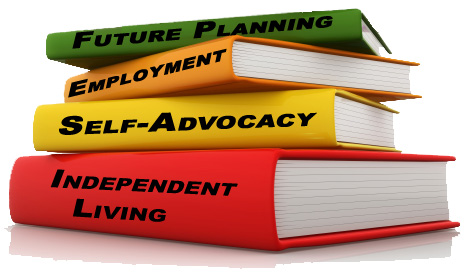










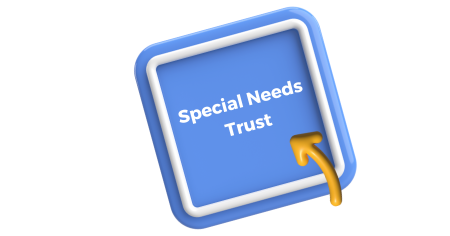
 Contact Us!
Contact Us!

